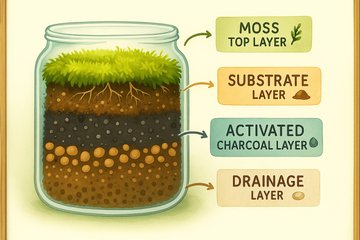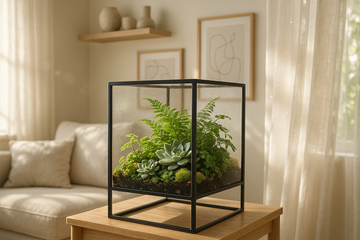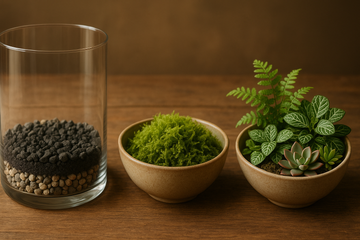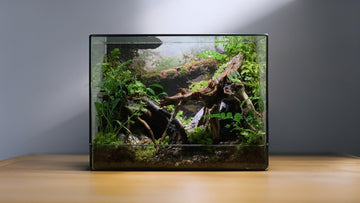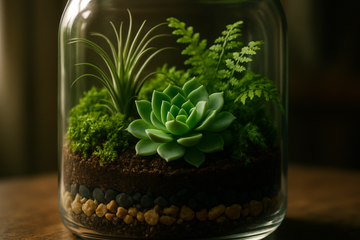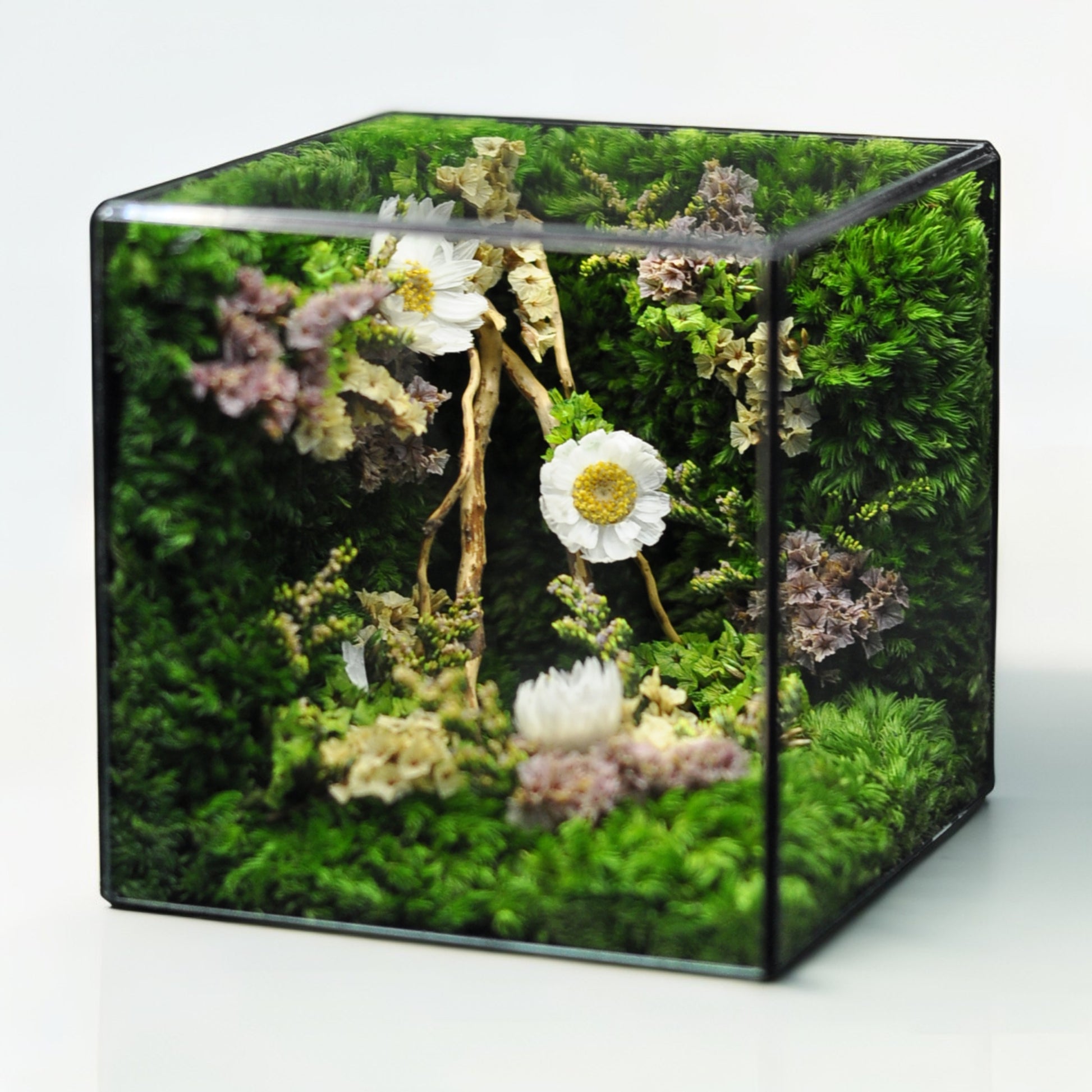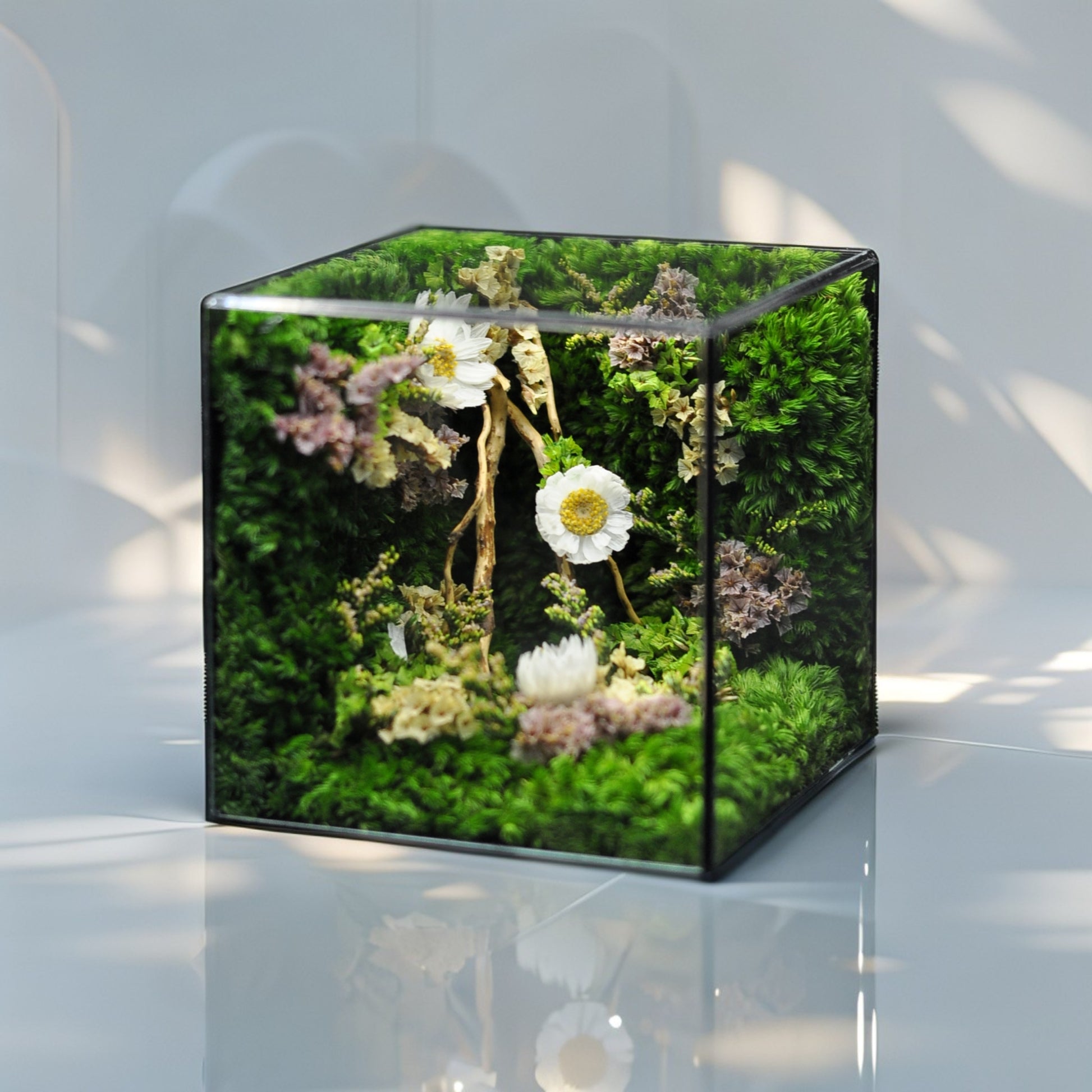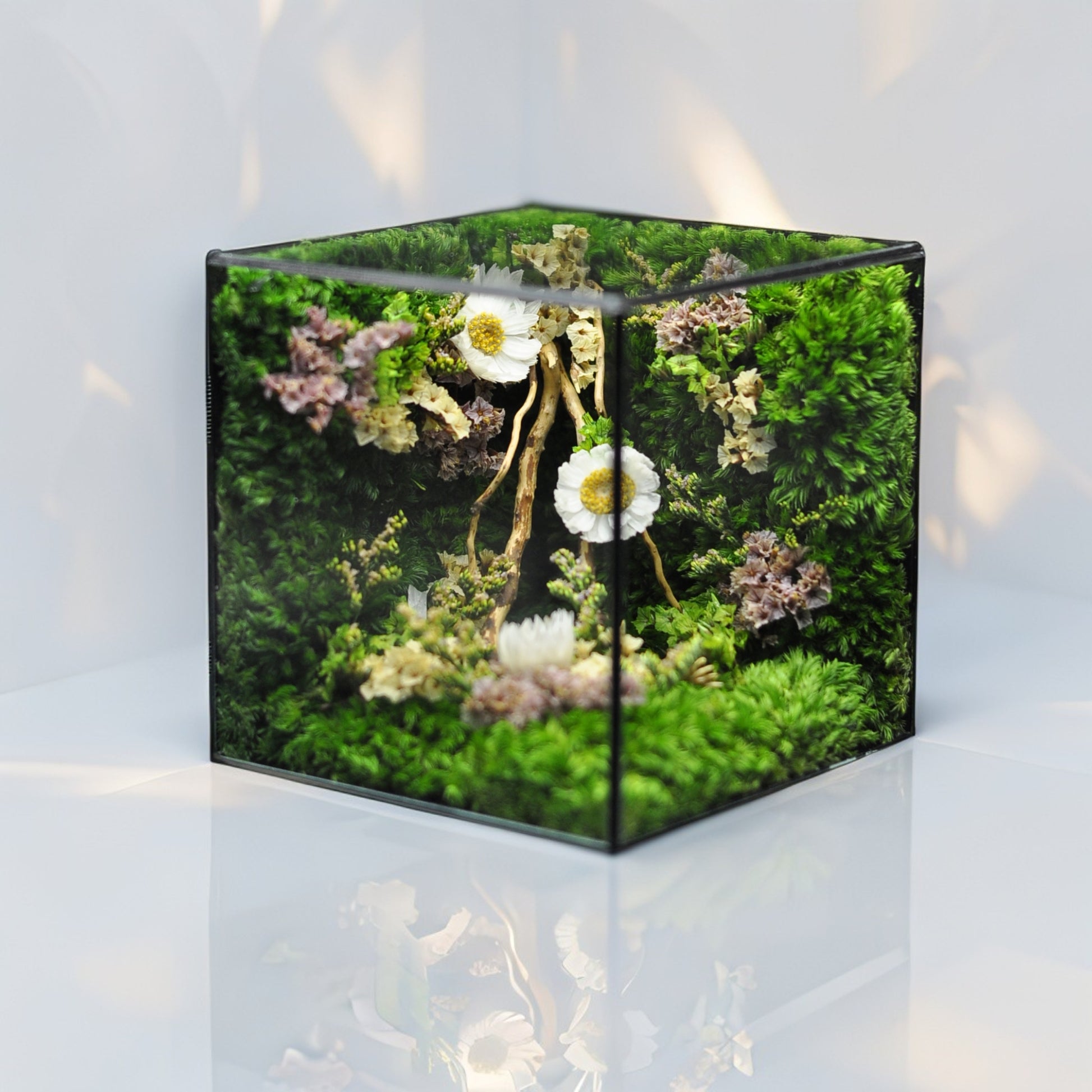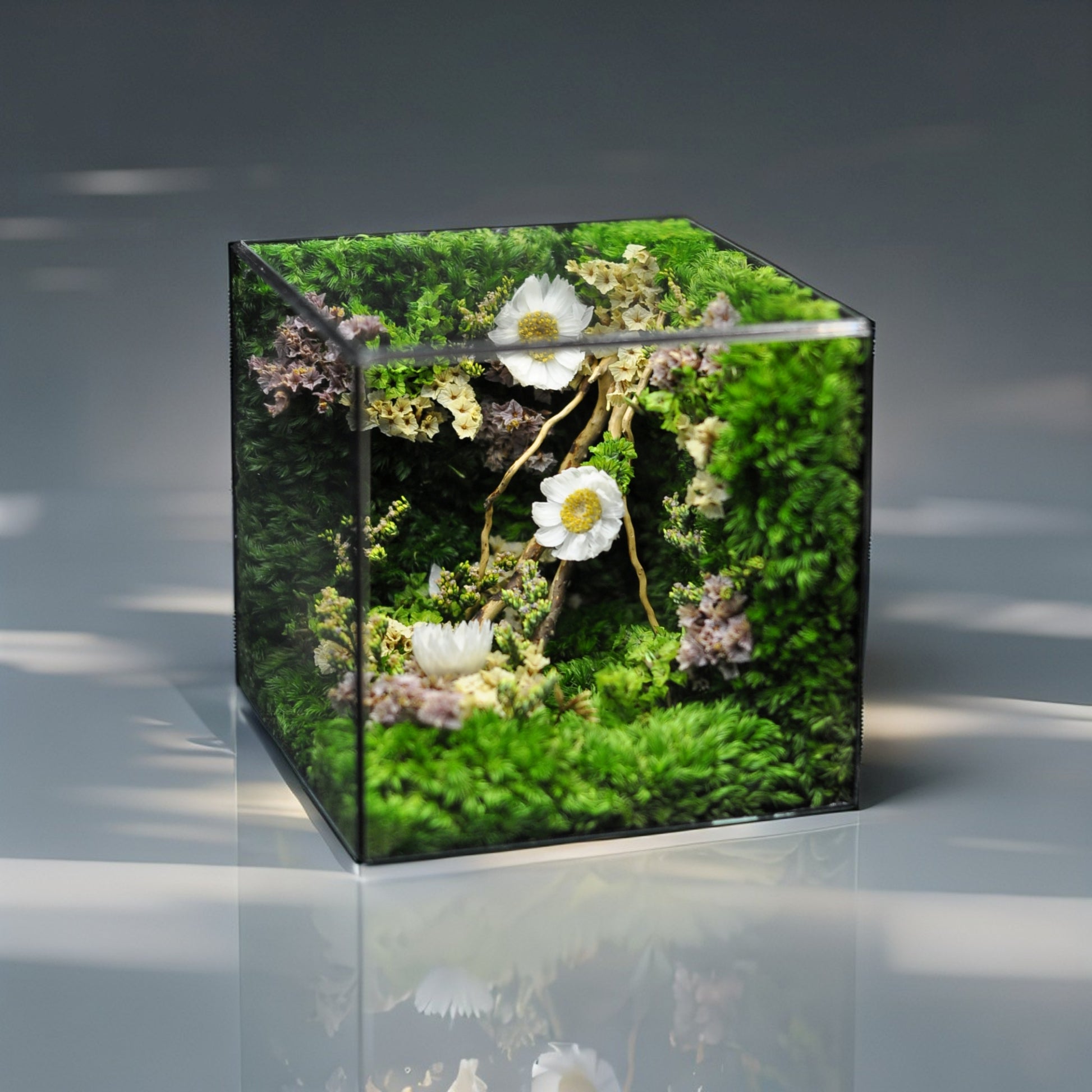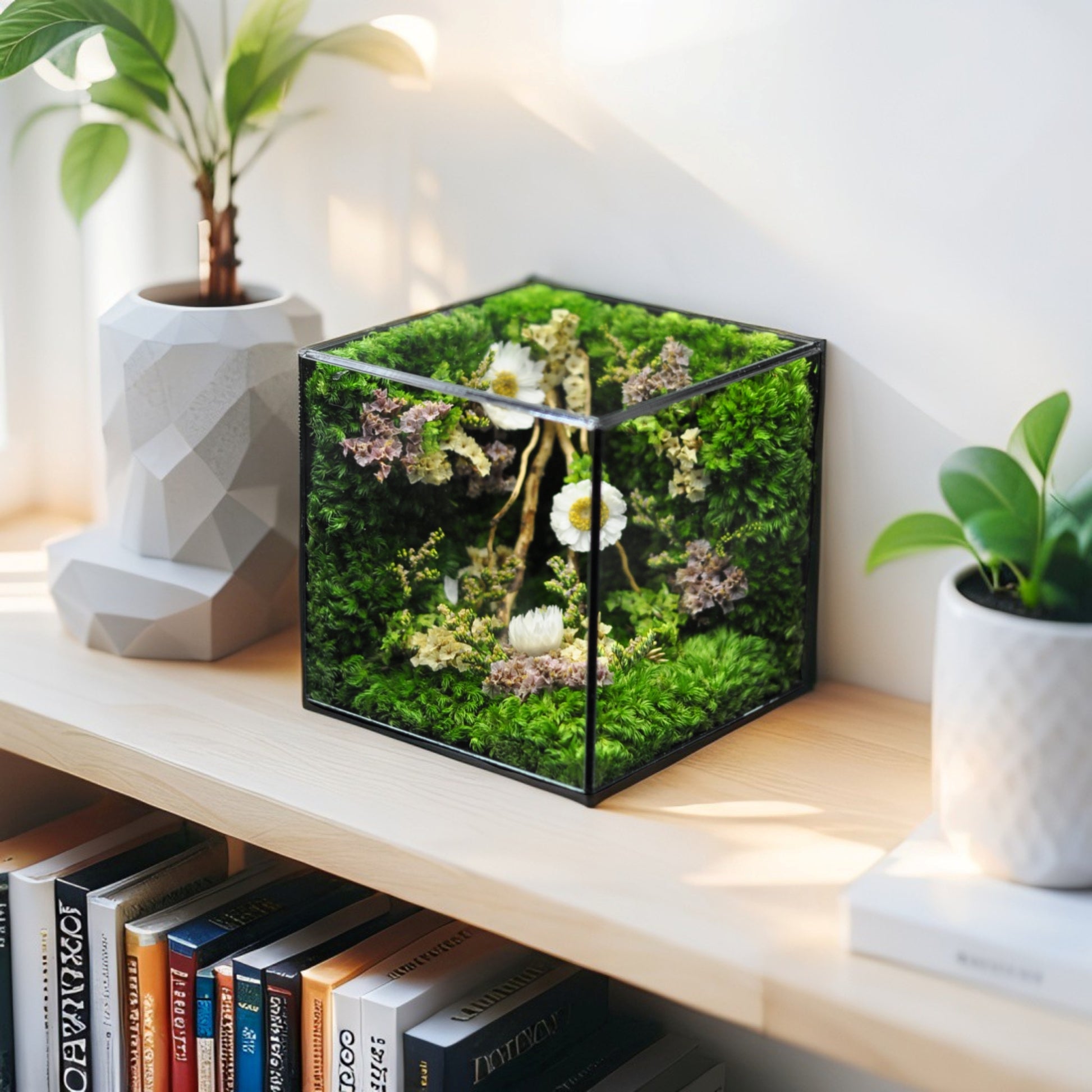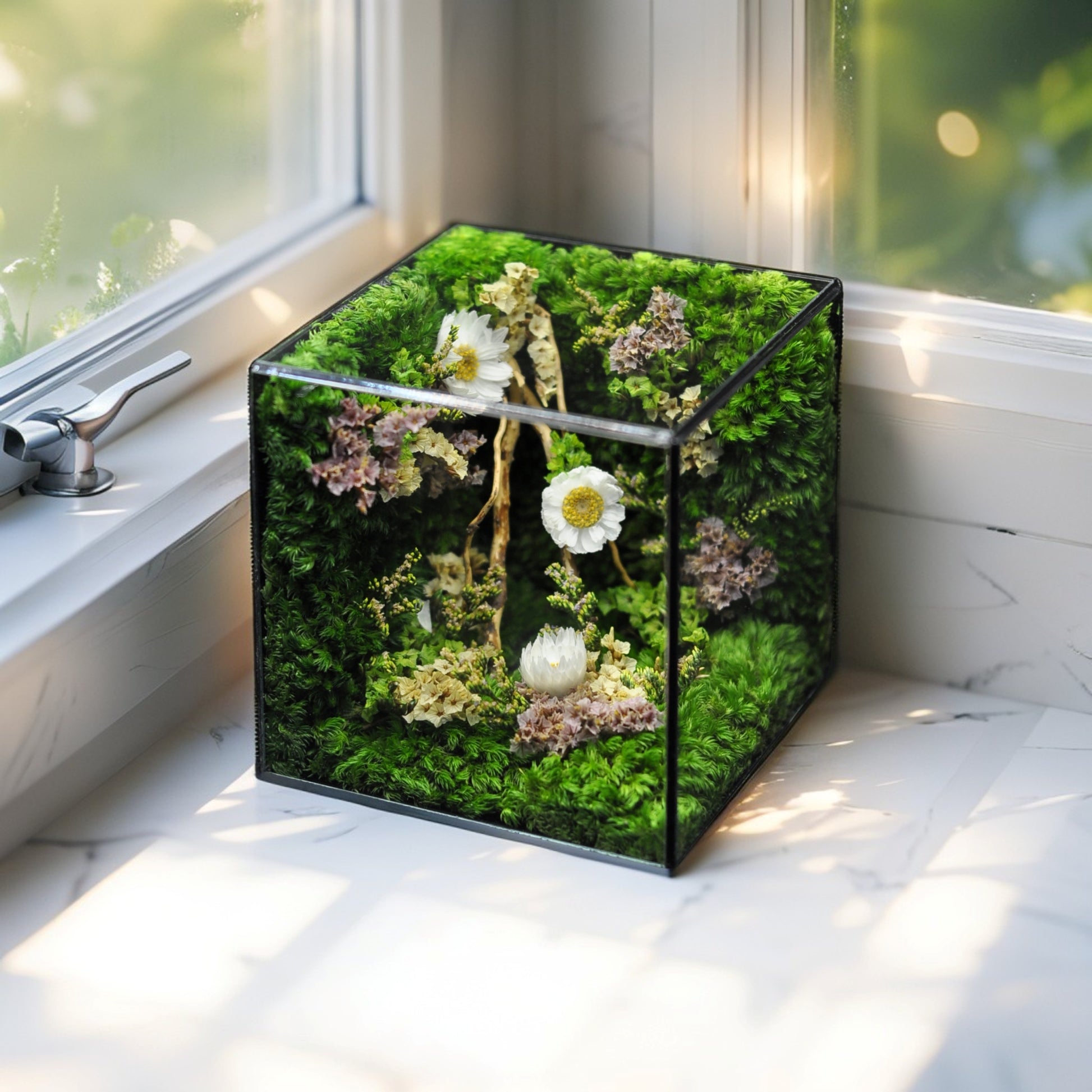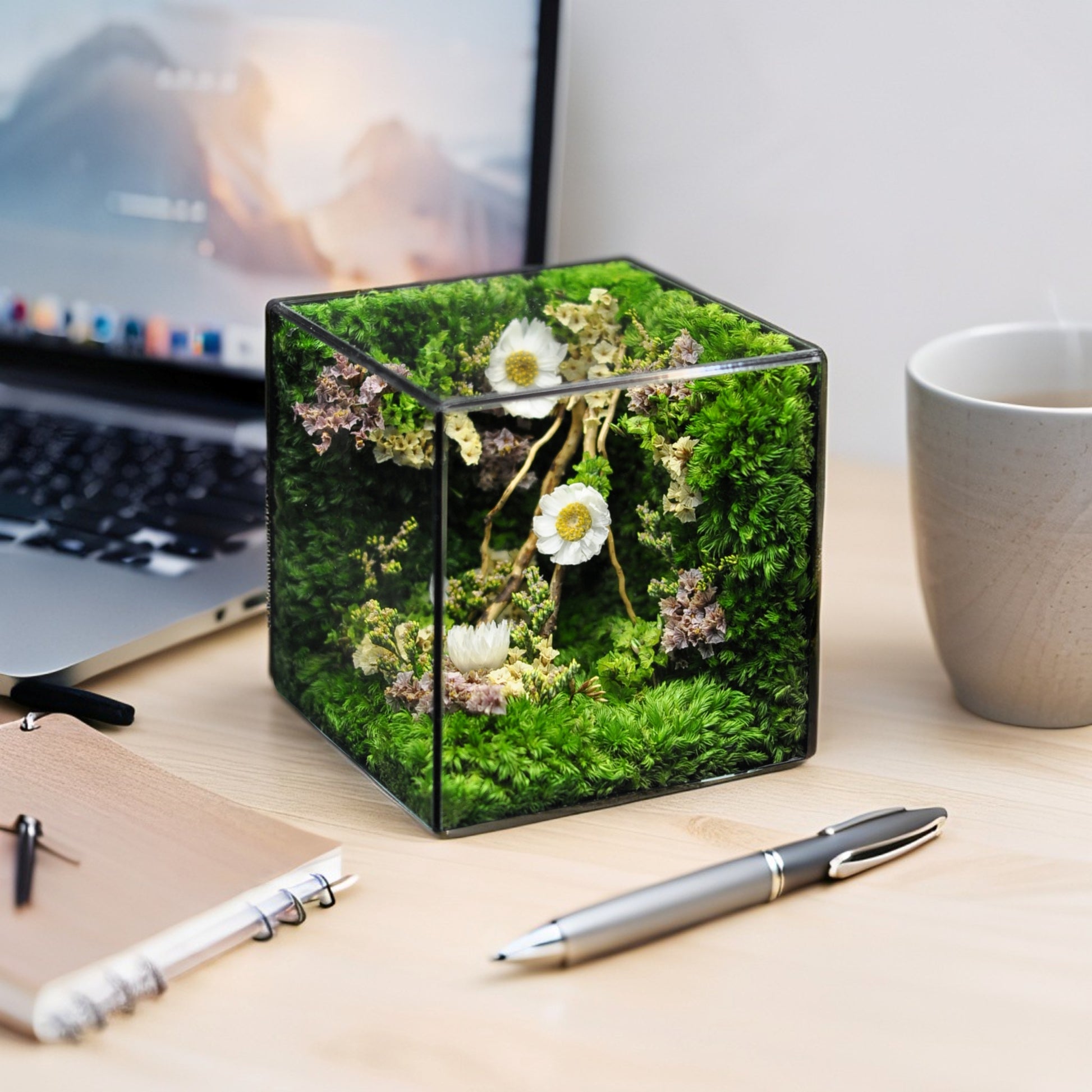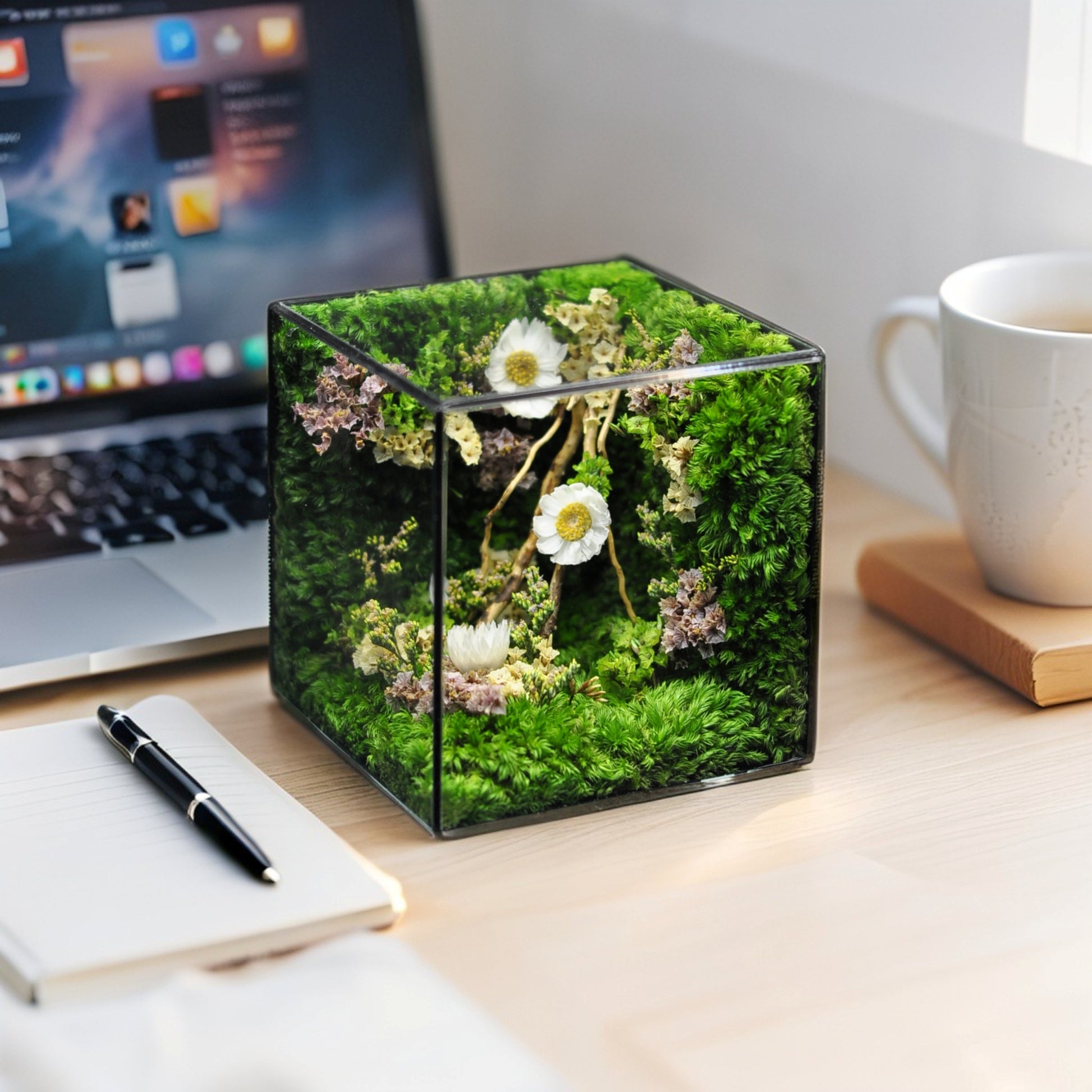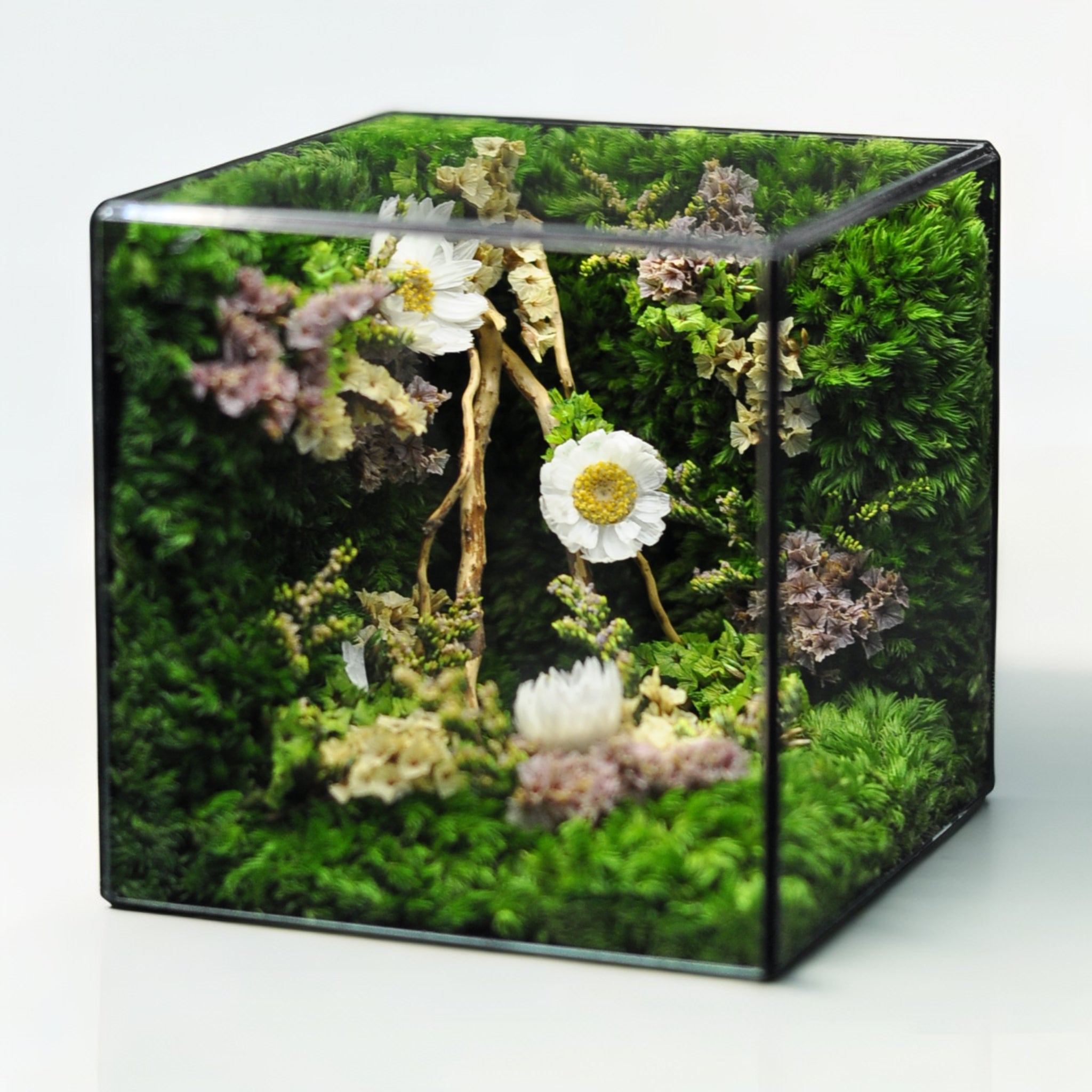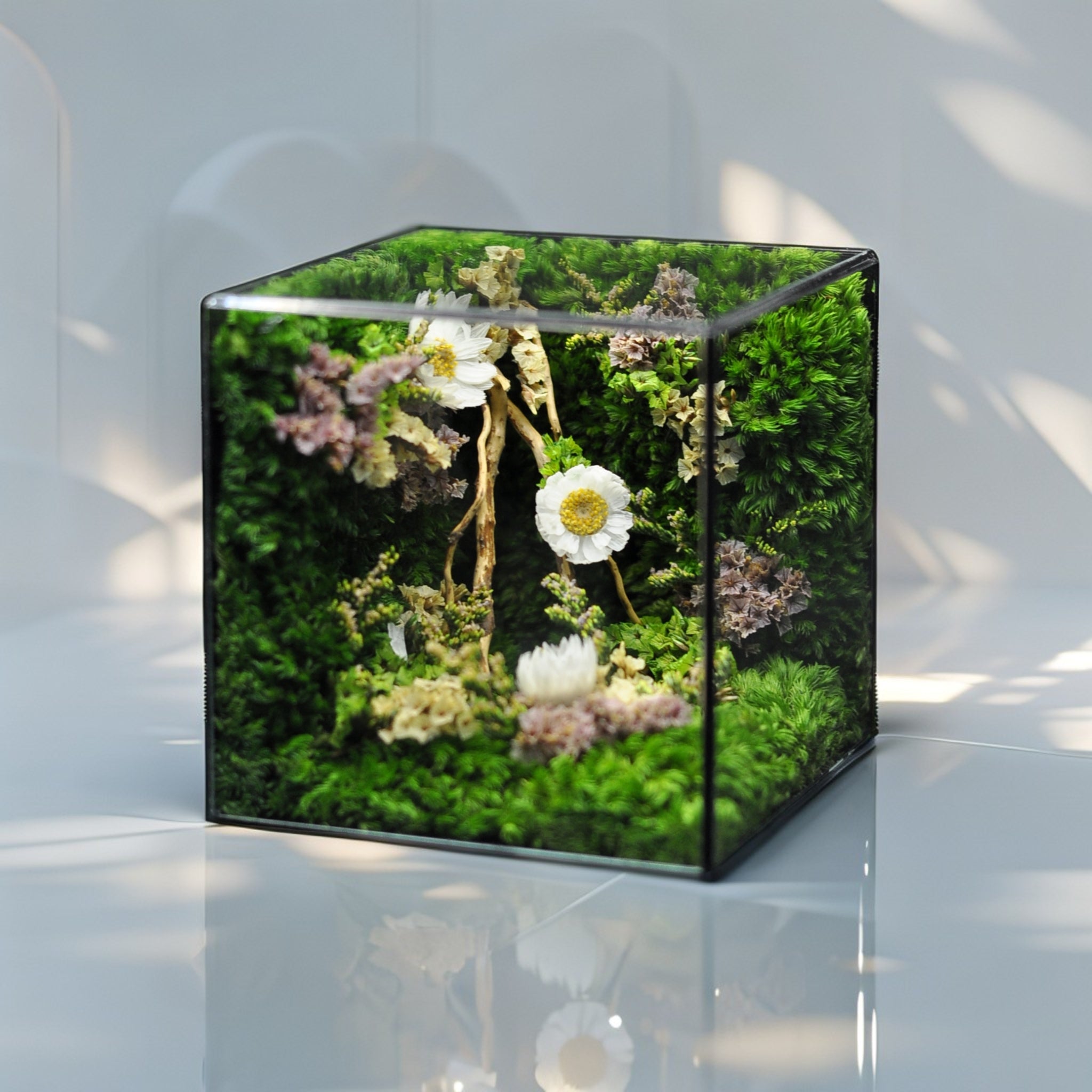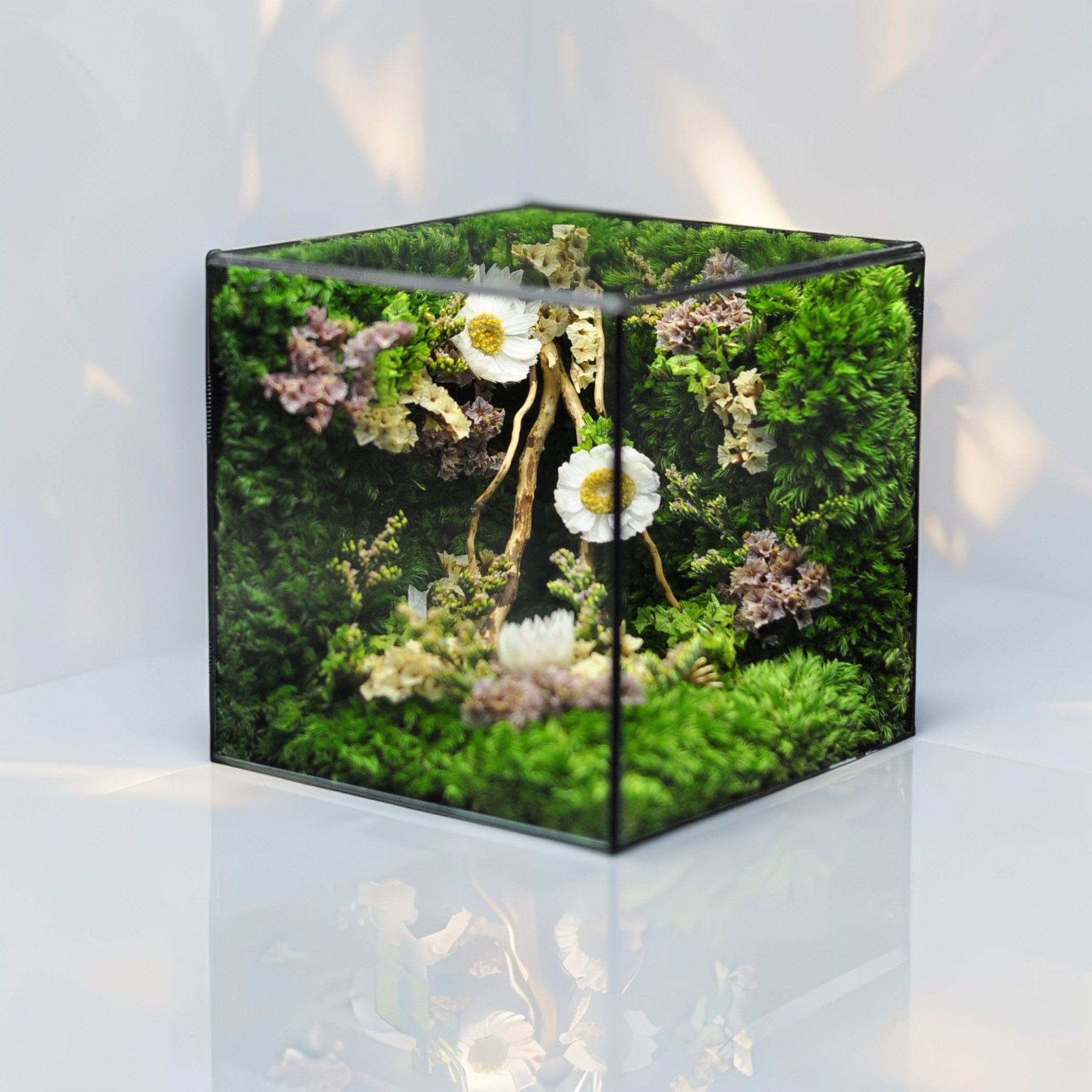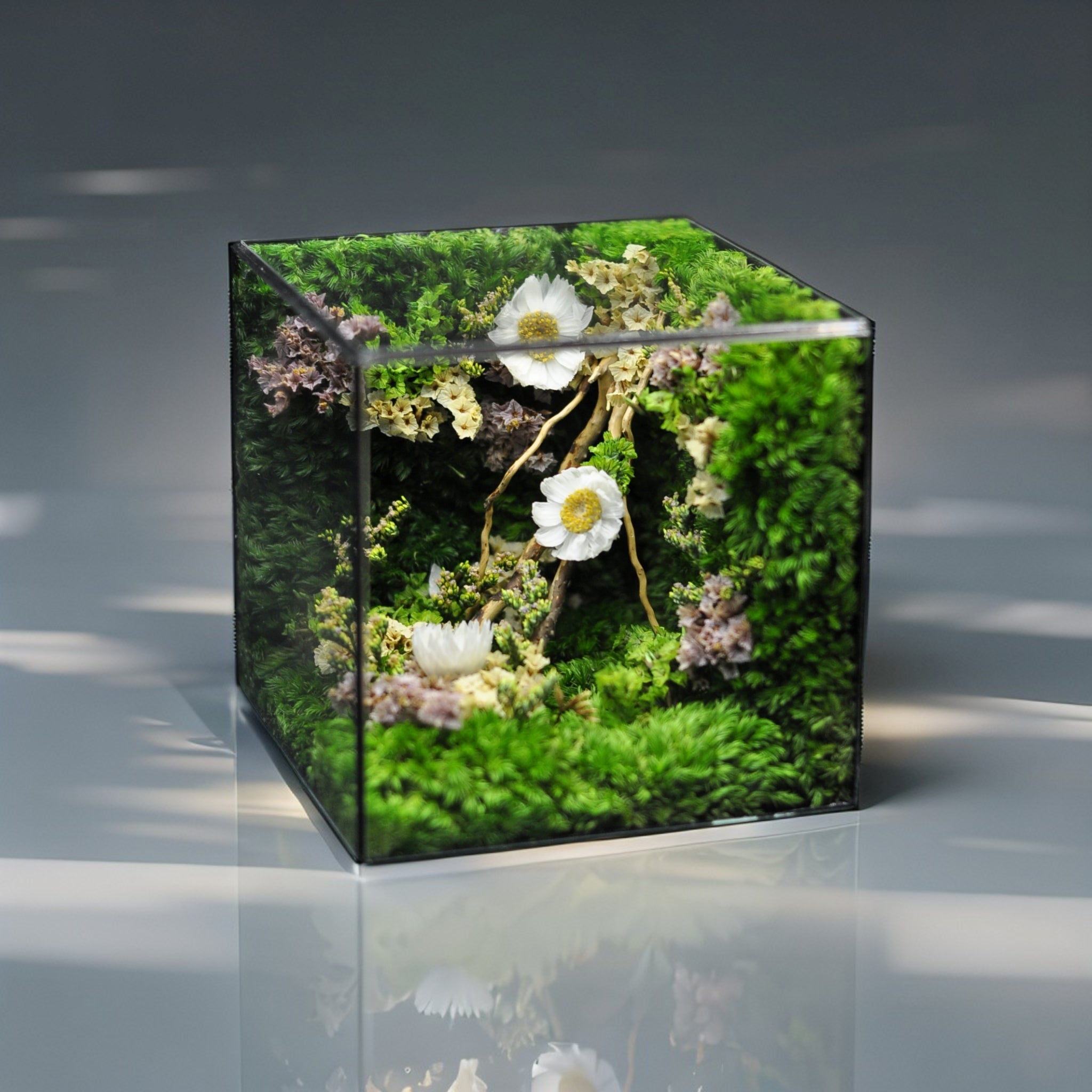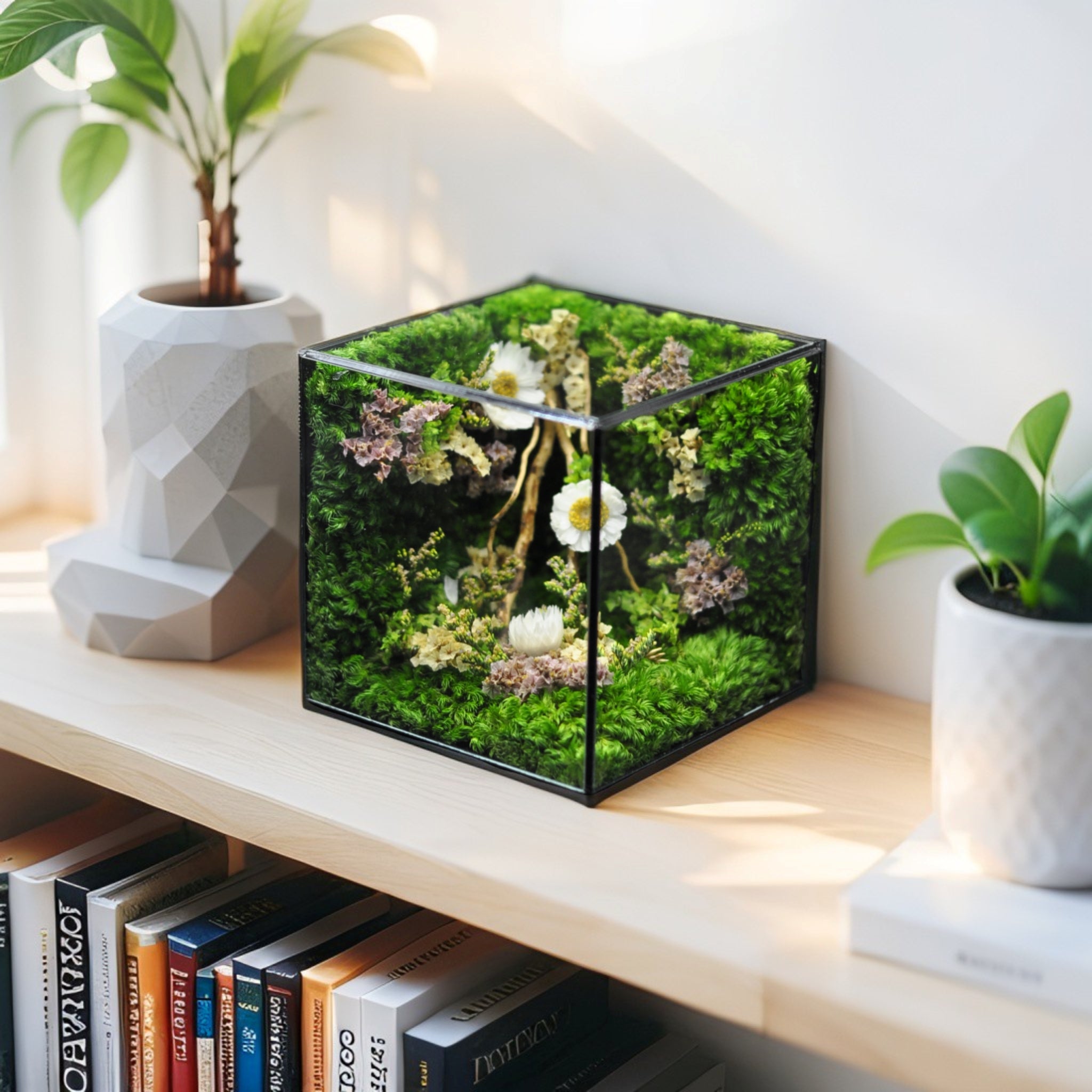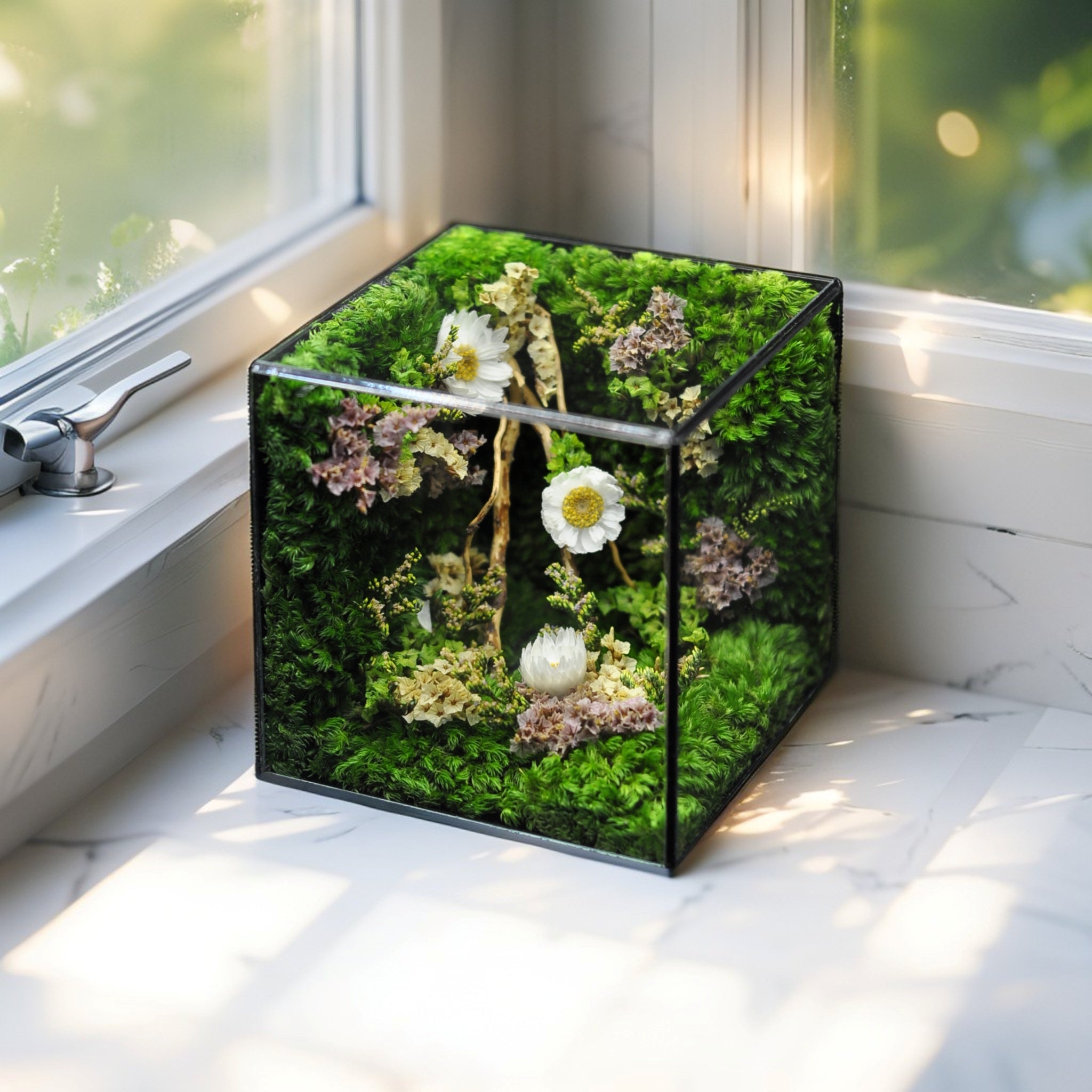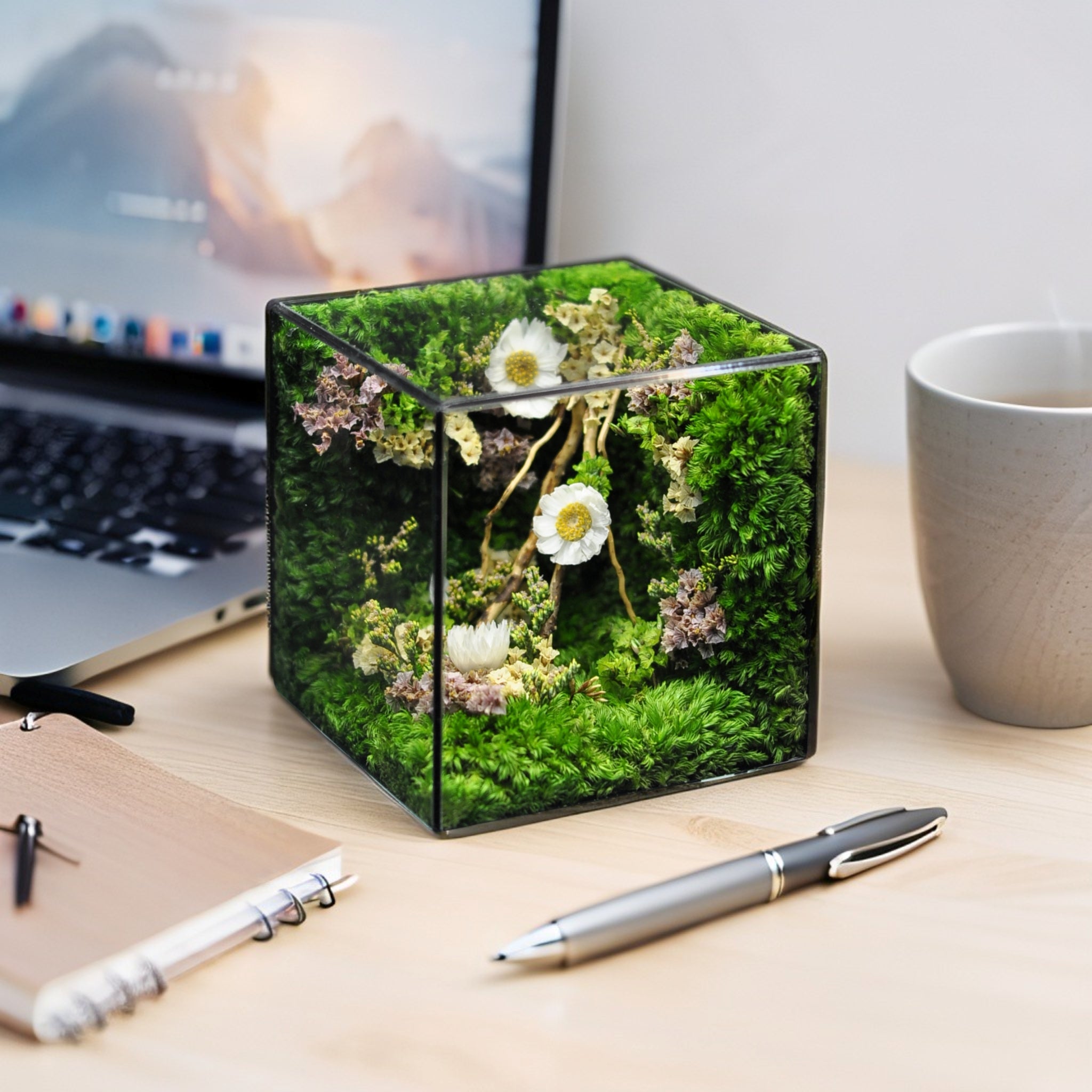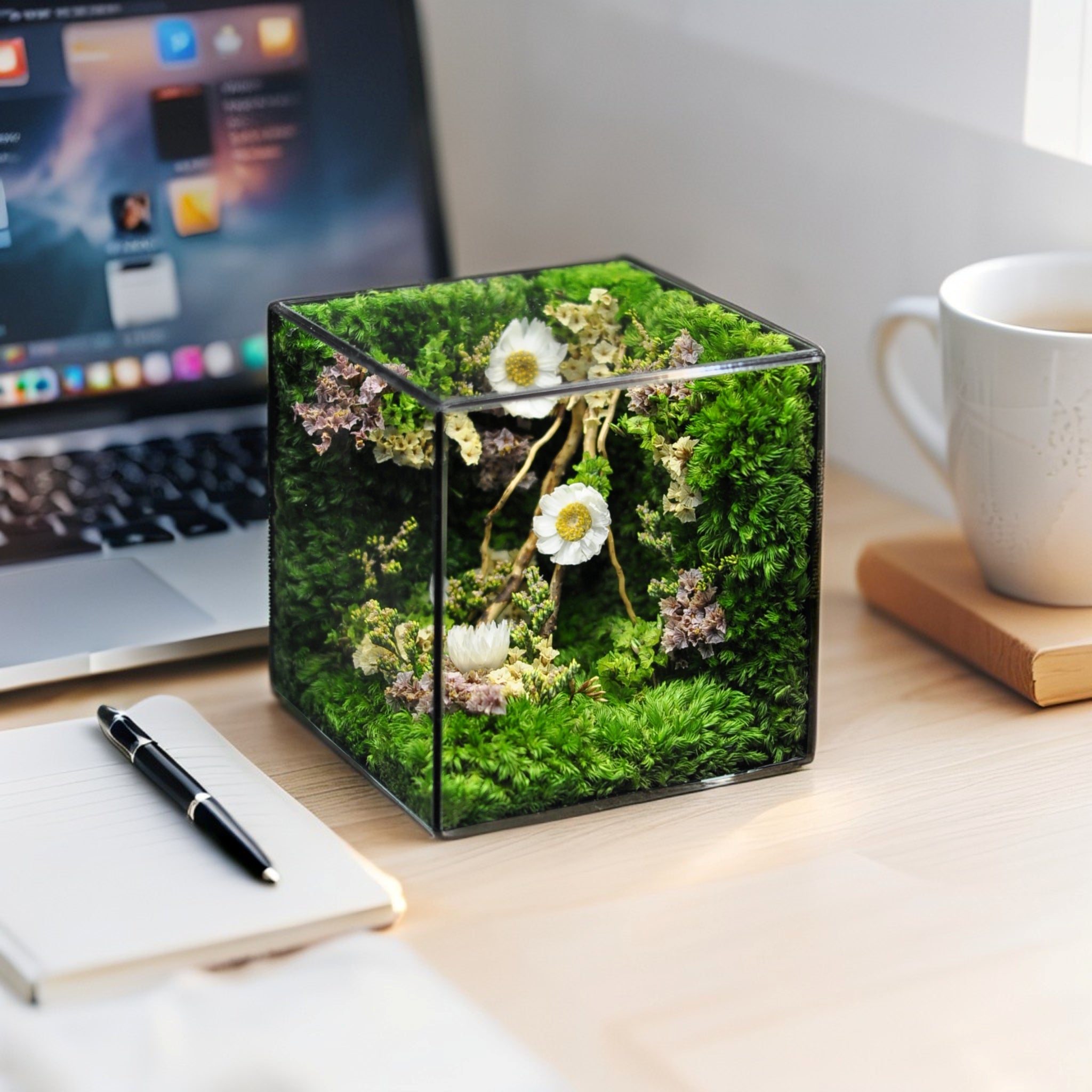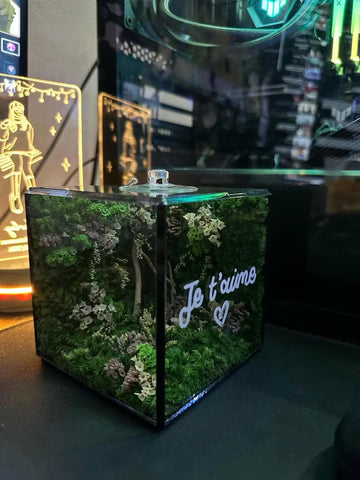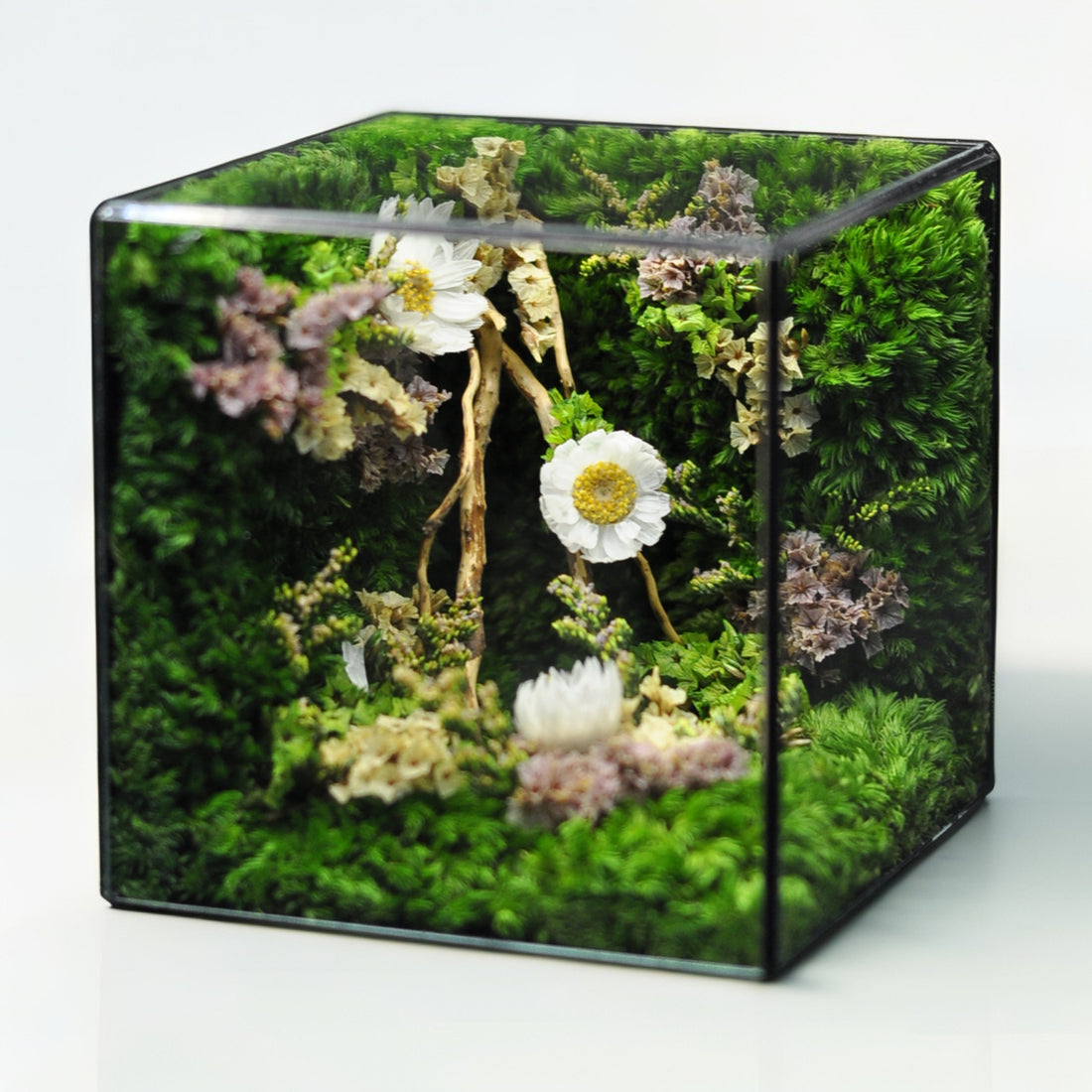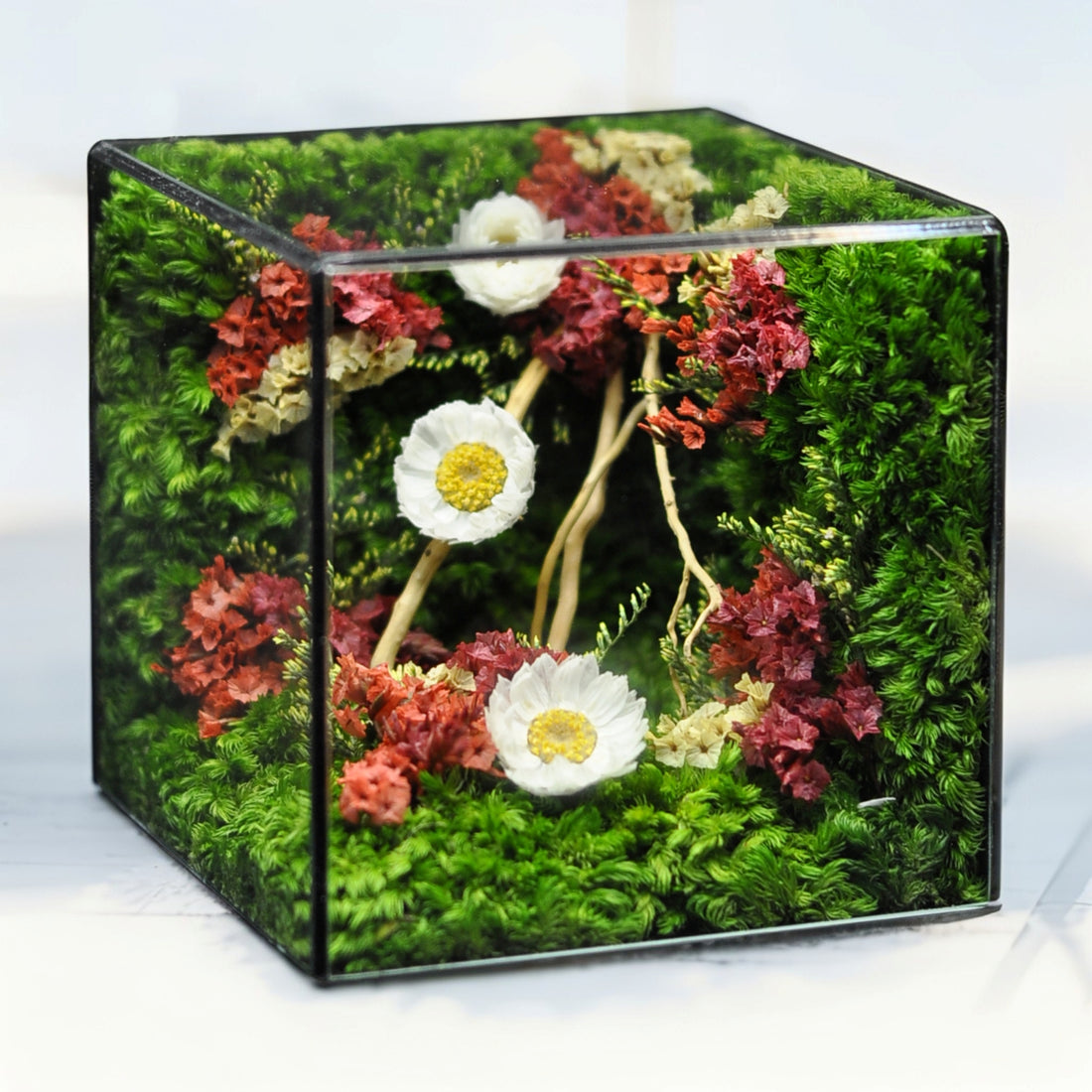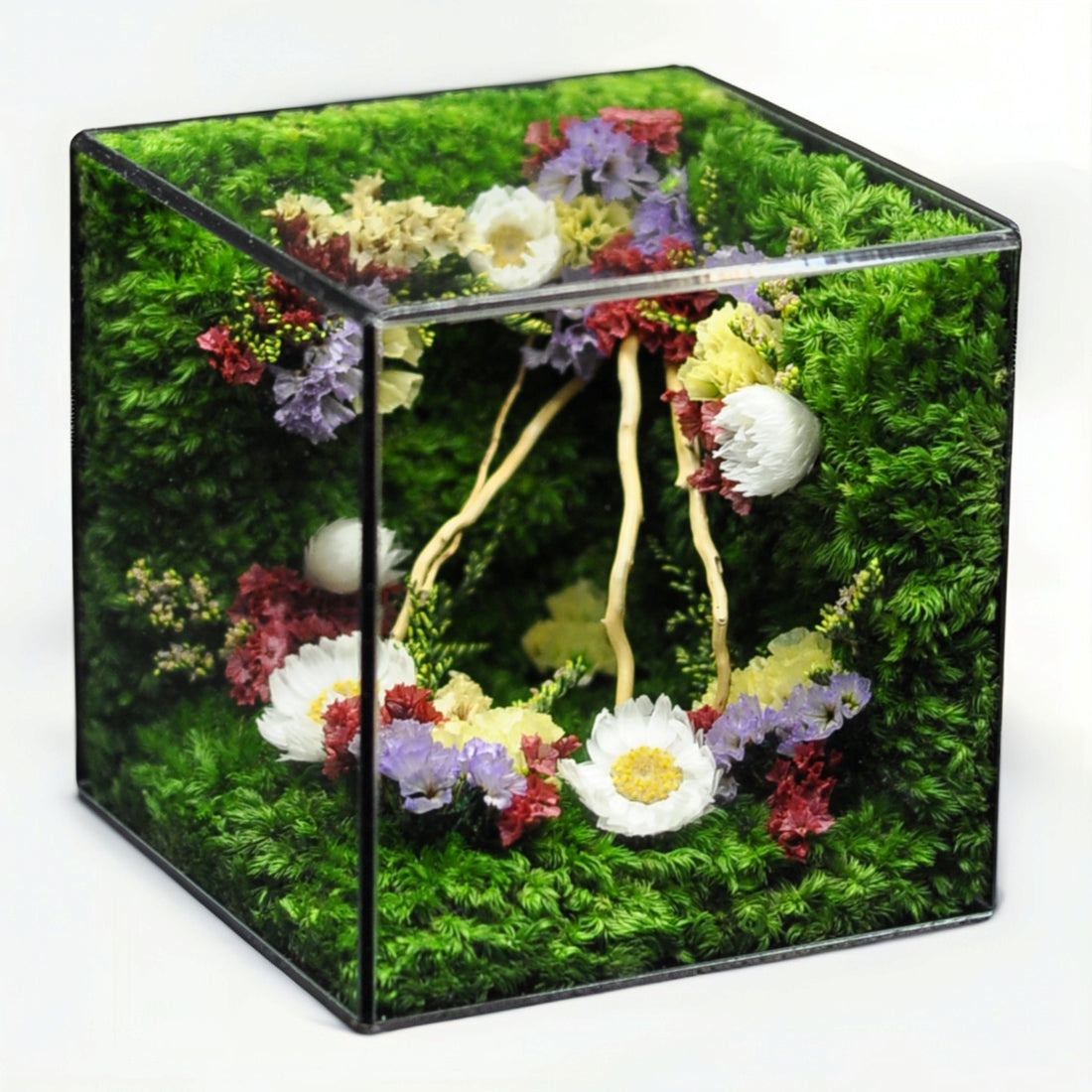Key Takeaways
Terrarium workshops blend hands-on creativity, relaxation, and practical plant-care skills into an immersive DIY experience. With options ranging from in-person studio sessions to fully equipped virtual kits and themed classes, there’s a perfect workshop for solo hobbyists, beginners, groups, and corporate teams. Below are the key takeaways to guide you toward your ideal terrarium workshop in 2025.
- Start your perfect DIY terrarium workshop with expert guidance: Workshops supply all materials—including glass containers, soil layers, succulents, and decorative accents—and step-by-step coaching to build a thriving miniature ecosystem.
- Pick a format that fits your schedule and style: Choose from hands-on in-person sessions, virtual terrarium workshop kits delivered to your door, or hybrid events that blend live demos with shipped supplies.
- Ignite team spirit through corporate-friendly, remote workshops: Terrarium workshops, often marketed as corporate team-building and virtual events, represent an untapped opportunity for group bookings and engaging remote participants.
- Enjoy therapeutic benefits beyond the session: Guided terrarium care instructions foster mindfulness and environmental connection, turning your glass garden into a lasting source of green therapy.
- Stay on budget with transparent, cost-effective pricing: Clear pricing tiers for solo, group, and corporate bookings ensure affordable DIY fun, with no hidden fees or surprise add-ons.
- Customize your mini-garden with themed variations: Dive into desert terrarium workshops, tropical micro-garden sessions, or succulent terrarium design tips for personalized greenery that matches any décor.
- Feel confident as a complete beginner: Structured, beginner-friendly workshops demystify terrarium creation by breaking the process into simple steps and offering hands-on support throughout.
- Bring it home with comprehensive take-home kits: Each workshop includes curated materials, terrarium care guides, and design tips so you can maintain and enjoy your creation long after class ends.
Armed with these insights, you’re ready to choose the terrarium workshop that best suits your interests, budget, and schedule. In the sections ahead, we’ll explore each workshop format in detail, outline what to expect during your session, and share expert tips on nurturing your terrarium for lasting success.
Introduction
Imagine transforming a simple glass jar into a vibrant mini-ecosystem that flourishes right in your home. A terrarium workshop offers just that—an immersive, hands-on experience where creativity and nature intertwine to spark joy and relaxation. Whether you seek a calming solo activity, a fun outing with friends, or a unique team-building event, there’s a terrarium workshop tailored to your needs in 2025.
These workshops not only demystify the art of plant care but also provide all the materials and expert guidance needed to create your own green paradise. From in-person sessions brimming with social interaction to convenient virtual kits delivered to your doorstep, the options are as diverse as the terrariums themselves. Let’s dive into the myriad of workshop formats available and see how you can cultivate your very own miniature garden while unlocking the therapeutic benefits of tending to plants.
Benefits of Attending a Terrarium Workshop
Creative Expression & DIY Fun
Ever dreamed of a tiny forest sitting on your desk? At a terrarium workshop, you’ll dive into hands-on crafting and master foundational DIY techniques:
- Substrate layering: 1–2 cm gravel, 0.5 cm activated charcoal (for odor control and water filtration), 3–5 cm potting mix
- Plant placement: arrange taller specimens at the back, shorter at the front for depth and balance
- Decorative touches: vibrant sands, miniature driftwood, delicate figurines
By the end of the session, you’ll have the confidence—and creativity—to build your own terrarium masterpieces. Ready to try layering your first substrate?
Relaxation, Mindfulness & Green Therapy
Feeling stressed at the end of the day? Studies in the Journal of Environmental Psychology (2016) found that plant-focused crafting can lower cortisol levels and boost mood. The repetitive, detail-oriented tasks of misting, arranging tiny succulents, or sculpting a fairy-garden scene ground your attention in the present moment. One participant told us she now waters her terrarium instead of scrolling through her phone at night—proof that this green therapy extends far beyond the workshop.
Building Practical Plant-Care Skills
Workshops don’t just teach design—they equip you with lasting horticultural know-how:
- Water-wise methods tailored to open succulent terrariums (every 2–3 weeks) versus closed tropical micro-gardens (weekly misting)
- Selecting low-maintenance species (Echeveria, Haworthia for sun lovers; ferns and moss for humid, enclosed jars)
- Understanding substrate functions: drainage, aeration and nutrient retention
- Safe pest control: using organic insecticidal soap sparingly to protect enclosed ecosystems
This practical training ensures your terrarium thrives long after you leave.
Team Spirit & Social Connection
Terrarium workshops are a fun way to connect. Collaborative builds, timed design challenges and shared décor choices foster creativity and camaraderie. At Acme Corp’s retreat, Marketing and Sales teams co-designed three vibrant desert terrariums in 90 minutes—sparking cross-departmental dialogue and a fresh sense of teamwork.
Types of DIY Terrarium Workshops
In-Person Studio Sessions
Join fellow plant lovers in a fully equipped studio with all materials at your fingertips. A typical 2-hour timeline might look like:
0–15 min: substrate layering demo
15–45 min: planting and arranging
45–60 min: decorating with sands and ornaments
60–120 min: Q&A, troubleshooting and a guided care overview
Perfect for beginners and hobbyists who crave hands-on guidance.
Virtual Terrarium Workshop Kits
Can’t make it to the studio? Receive a curated kit—containers, soils, plants and tools—shipped to your door, then join a live online session. Instructors guide you in real time, adapting to different time zones and group sizes for a seamless virtual terrarium workshop experience.
Hybrid Workshops (Live Demos + Shipped Supplies)
Combine the best of both worlds: participate on-site or online for a live demonstration, then receive a kit to complete your terrarium at home. Ideal for flexible schedules and remote teams seeking a shared creative outlet.
Themed Variations
Desert Terrarium Workshop
Focus on drought-tolerant succulents and cacti, layered with sand and pebbles for a minimalist, sun-loving scene.
Tropical Micro-Garden Sessions
Craft a lush, closed-jar ecosystem with ferns, mosses and air plants. Learn humidity control, weekly misting routines and how to maintain a mini tropical forest under glass.
What to Expect at a Terrarium Workshop
All-Inclusive Materials & Supplies
• Glass or acrylic containers (open-top and closed jars)
• Substrates: gravel, activated charcoal, premium potted mix
• Plants sorted by workshop type: succulents for open terrariums, ferns and moss for closed jars
• Decorative accents: colored sand, pebbles, miniature figures
• Tools: tongs, spatulas, gloves, spray bottles
Step-by-Step Expert Guidance
Led by experienced horticulturists and designers who:
- Demonstrate each assembly step and optimal layer thicknesses
- Offer one-on-one troubleshooting for challenges like plant placement indecision or over-watering
- Share best practices to keep your mini-garden healthy
Take-Home Kits & Comprehensive Care Guides
All participants receive a personalized care guide and a mini kit with extra soil, replacement plants and tools—so you can nurture your terrarium’s ongoing growth and mindfulness benefits at home.
Transparent Pricing & Budget-Friendly Options
In-person studio sessions: $40–80 per person
Virtual kits (materials, shipping, live instruction): $50–100
Prices vary by city and instructor expertise; group discounts available. See “How much does a terrarium workshop cost?” in our FAQ for details.
Beginner-Friendly Structure
No prior experience? No problem. Every workshop is designed with clear, sequential instruction and supportive instructors—ensuring success for first-timers and seasoned hobbyists alike. Check “Are terrarium workshops suitable for beginners?” in our FAQ.
Post-Workshop Terrarium Care & Maintenance
Succulent Terrarium Care Essentials
• Light: bright, indirect sunlight for 4–6 hours daily
• Water: every 2–3 weeks in open containers; use a spray bottle for precise misting
• Ventilation: leave lids off for several hours each week to prevent mold
Watering, Lighting & Environmental Best Practices
Rotate terrariums quarterly for even light exposure and clean the glass to maximize photosynthesis. For pests (aphids, fungus gnats), isolate the terrarium and apply organic insecticidal soap at half-strength, testing on a single leaf first.
Troubleshooting Common Issues
• Mold or algae: increase airflow, reduce misting frequency
• Root rot: remove damp plants, let substrate dry fully, adjust watering
• Pests: isolate affected terrarium, treat carefully with organic solutions
Sustaining Mindfulness & Ongoing Benefits
Turn weekly misting or substrate checks into mini mindfulness rituals—journal your observations or share growth photos in online communities to keep the green therapy going.
Corporate & Group Terrarium Workshops
Team-Building Through DIY Terrarium Fun
Encourage collaboration with shared builds and timed challenges that break down silos and spark fresh ideas.
Remote & Virtual Corporate Sessions
Distribute virtual terrarium workshop kits to each participant, then connect via live video facilitation—perfect for distributed teams seeking a unified creative boost.
Group Booking Process & Discounts
Private events require a minimum of 10 participants. Tiered pricing:
• 10–20 people: 10% off per person
• 21+ people: 15% off per person
Contact us to customize date, theme and group size or book a workshop.
Customizing Your Mini-Garden: Design Tips & Themes
Terrarium Design Tips for Any Décor
- Color palettes: pair cool-toned succulents with natural stone, or vibrant sands with warm-leafed plants
- Textures: combine spiky Haworthia, soft moss and air plants for contrast
- Containers: geometric glass, repurposed jars, hanging globes—choose to match your space
Personalized Themed Workshops
Seasonal or branded themes, from holiday sparkle to corporate colors, with custom labels, logos and packaging for gifts or events.
Expert Tips & Resources
Insights from Professional Terrarium Artists
“A well-balanced terrarium is like a miniature ecosystem,” says Jane Green, award-winning designer. Pro Tip: start with a focal plant and build layers of interest around it.
Recommended Supplies & Where to Buy
- Succulent Studios: plant subscriptions delivered monthly
- The Sill: premium potted succulents and air plants
- Ecopots: eco-friendly glass containers
- Terrarium Supply Co.: tool sets with bulk-purchase discounts
Further Learning: Workshops, Books & Online Communities
- Advanced masterclasses and local meetups
- “Terrariums: Gardens Under Glass” by Maria Colletti
- YouTube: Planterina, The Succulent Ecstasy
- Facebook: Terrarium Addicts; Reddit: r/terrariums
Frequently Asked Questions
How much does a terrarium workshop cost?
In-person sessions range from $40–80 per person; virtual workshop kits are $50–100. Prices vary by region, materials and instructor expertise.
What to expect at a terrarium workshop?
A 1.5–2 hour session with all materials provided—containers, substrates, plants, tools and décor—plus expert, step-by-step instruction and a take-home care guide.
Are terrarium workshops suitable for beginners?
Absolutely. Workshops are designed for all skill levels, offering clear guidance, one-on-one support and no-risk creativity.
What materials do I need for a terrarium workshop?
None! All supplies—glass containers, soils, plants and tools—are provided. If you wish to host your own, you’ll need containers, substrate layers (gravel, charcoal, soil), selection of plants, tongs, spatulas and a spray bottle.
Conclusion
Attending a terrarium workshop offers a unique blend of creative expression, practical skills, and stress relief, as highlighted throughout this article. Participants not only craft their own mini ecosystems but also gain essential horticultural knowledge, such as effective watering techniques and sustainable plant care methods. Moreover, these workshops foster social connections and teamwork among attendees, making them a popular choice for both individuals and corporate groups.
As you embark on your terrarium journey, whether through hands-on studio sessions or guided virtual workshops, consider the mindfulness benefits that such activities can bring to your daily routine. Embracing this green therapy can inspire not only personal growth but also a deeper appreciation for nature’s intricate beauty. Will you take the next step to cultivate your creativity and well-being through the art of terrarium building?
Frequently Asked Questions (FAQ)
Q: How much does a terrarium workshop cost?
A: In-person sessions range from $40–80 per person; virtual workshop kits are $50–100. Prices vary by region, materials and instructor expertise.
Q: What to expect at a terrarium workshop?
A: A 1.5–2 hour session with all materials provided—containers, substrates, plants, tools and décor—plus expert, step-by-step instruction and a take-home care guide.
Q: Are terrarium workshops suitable for beginners?
A: Absolutely. Workshops are designed for all skill levels, offering clear guidance, one-on-one support and no-risk creativity.
Q: What materials do I need for a terrarium workshop?
A: None! All supplies—glass containers, soils, plants and tools—are provided. If you wish to host your own, you’ll need containers, substrate layers (gravel, charcoal, soil), a selection of plants, tongs, spatulas and a spray bottle.
Q: What types of terrarium workshops are available?
A: You can choose in-person studio sessions, virtual kits with live online instruction, hybrid workshops combining live demos and shipped supplies, or themed variations like desert terrariums and tropical micro-gardens.
Q: What are the essential care steps for succulent terrariums?
A: Provide bright, indirect sunlight for 4–6 hours daily; water open containers every 2–3 weeks using a spray bottle for precision; and leave lids off for several hours each week to ensure ventilation and prevent mold.
Q: How can I troubleshoot common terrarium issues?
A: For mold or algae, increase airflow and reduce misting; for root rot, remove damp plants, let the substrate dry fully and adjust watering; for pests, isolate the terrarium and treat carefully with half-strength organic insecticidal soap.


